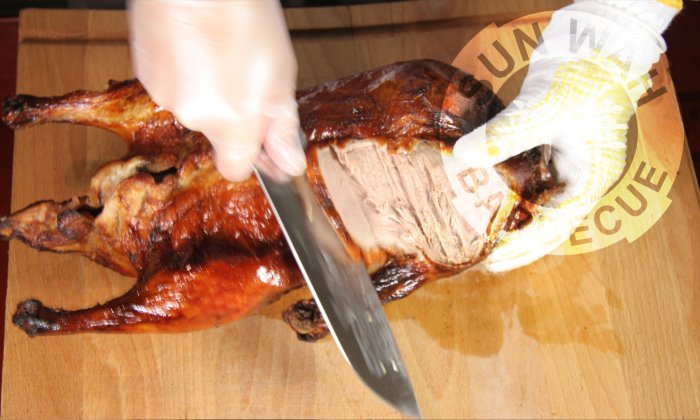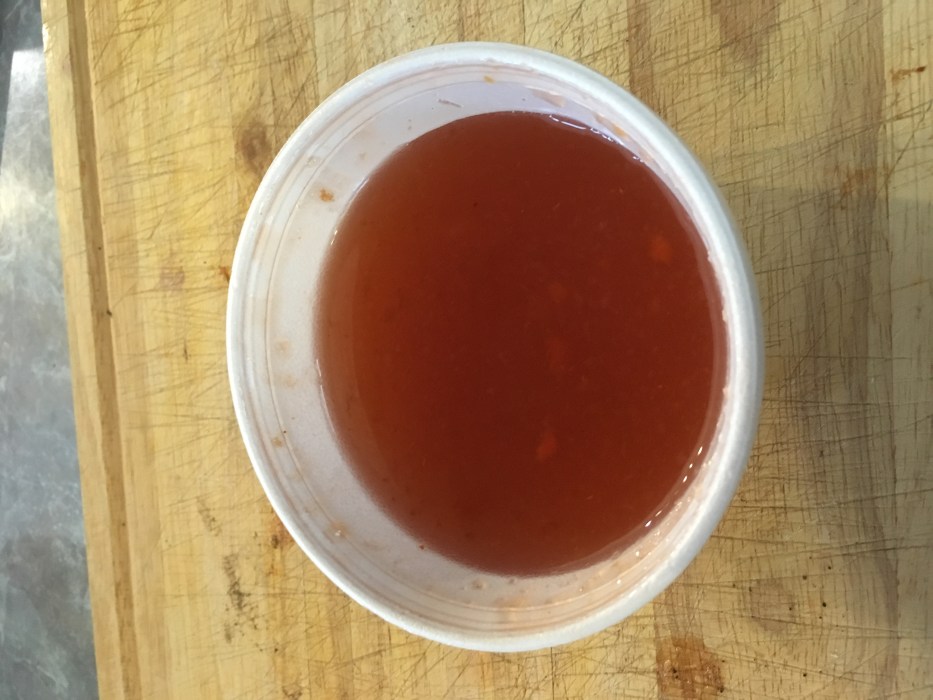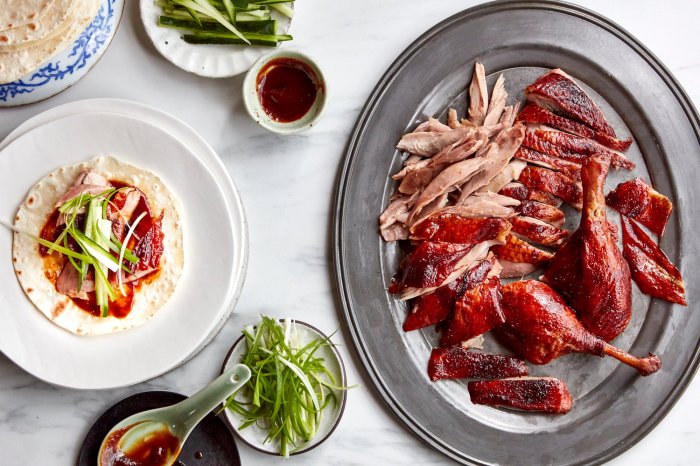Beijing Duck Sauce Recipe A Culinary Journey
Decoding the Deliciousness: A Deep Dive into Beijing Duck Sauce
Beijing duck sauce recipe – Beijing duck sauce, that sweet and tangy condiment, is more than just a simple accompaniment to Peking duck. Its history is rich, its variations diverse, and its culinary applications surprisingly broad. This exploration delves into the authenticity, ingredient variations, preparation techniques, serving suggestions, and storage of this beloved sauce, revealing the secrets behind its unique flavor profile.
Authenticity of Beijing Duck Sauce Recipes

Source: sunwahbbq.com
The “authenticity” of Beijing duck sauce is a fluid concept, evolving with culinary trends and regional preferences. However, certain characteristics consistently define the classic version. Below, we compare three recipes from reputable sources to highlight these commonalities and variations.
| Recipe Source | Ingredients | Preparation Method | Sauce Consistency |
|---|---|---|---|
| Recipe Source A (Example: A well-known Chinese cookbook) | Vinegar (typically rice vinegar), sugar, soy sauce, ginger, garlic, cornstarch | Simmering ingredients until thickened, often with a final adjustment of sweetness and tang | Thick, glossy, slightly translucent |
| Recipe Source B (Example: A renowned chef’s recipe) | Rice vinegar, rock sugar, light soy sauce, sesame oil, finely minced scallions | Simmering and reduction technique, potentially including a straining step for a smoother texture | Medium-thick, glossy, with visible scallion pieces |
| Recipe Source C (Example: A popular online recipe) | White vinegar, brown sugar, soy sauce, pineapple juice, cornstarch | Whisking cornstarch slurry into simmering sauce; quicker method | Thicker, possibly cloudier due to pineapple juice |
Historically, Beijing duck sauce’s origins are intertwined with the evolution of Peking duck itself. Early versions likely emphasized simpler ingredients and techniques, reflecting the resources available. Over time, influences from other culinary traditions have contributed to regional variations. Key characteristics of authentic Beijing duck sauce include a balance of sweet and sour notes, a glossy sheen, and a subtly savory undertone.
Imitations often rely on excessive sweetness or artificial flavors to achieve a similar effect.
Ingredient Variations and Substitutions

Source: sndimg.com
The flavor profile of Beijing duck sauce is significantly influenced by the choice of ingredients. Substituting key components can alter the sweetness, acidity, and overall complexity of the sauce.
- Vinegar: Substituting rice vinegar with white distilled vinegar results in a sharper, more acidic flavor. Apple cider vinegar would introduce a fruitier note.
- Soy Sauce: Light soy sauce provides a lighter color and saltiness compared to dark soy sauce, which imparts a richer, deeper color and umami.
- Sugar: Granulated sugar can be replaced with brown sugar for a molasses-like depth or honey for a floral sweetness.
Here’s a gluten-free and vegetarian variation:
Gluten-Free and Vegetarian Beijing Duck Sauce: Replace soy sauce with tamari (gluten-free soy sauce) or coconut aminos for a similar savory depth. Add a touch of toasted sesame oil for extra aromatic complexity.
Preparation Techniques and Methods
The preparation of Beijing duck sauce involves a delicate balance of simmering, thickening, and flavor adjustment. The cornstarch plays a crucial role in achieving the desired consistency, creating a glossy finish through gelatinization.
| Method | Description |
|---|---|
| Simmering and Reduction | This traditional method involves simmering the ingredients until the desired thickness is achieved through evaporation. It yields a richer, more complex flavor due to the prolonged cooking time. |
| Cornstarch Slurry | A cornstarch slurry is whisked into the simmering sauce to quickly thicken it. This method is faster but may result in a slightly less nuanced flavor profile. |
| Blending | After simmering, blending the sauce creates a smoother, more uniform consistency, eliminating any lingering lumps or bits of ingredients. |
Achieving the ideal balance of sweet, sour, and savory requires careful tasting and adjustment throughout the cooking process. Start with a base recipe and then fine-tune the sweetness and acidity to your preference.
Serving Suggestions and Culinary Applications

Source: nyt.com
Beijing duck sauce’s versatility extends beyond Peking duck. Its sweet and savory profile complements a variety of dishes.
- Peking Duck: The classic pairing, where the sauce’s sweetness cuts through the richness of the duck.
- Spring Rolls: Adds a vibrant flavor dimension to the traditionally neutral spring roll fillings.
- Stir-fried Vegetables: Enhances the flavor of simple stir-fries, adding a glossy sheen and a touch of sweetness.
- Dumplings: A delicious dipping sauce for steamed or pan-fried dumplings.
- Chicken Dishes: Complements roasted or stir-fried chicken dishes, providing a sweet and savory contrast.
Novel Application: Beijing Duck Sauce Glazed Salmon: Marinate salmon fillets in a mixture of Beijing duck sauce, soy sauce, and ginger before pan-searing or baking. The sauce creates a delicious, sticky glaze that complements the richness of the salmon.
The visual appeal of Beijing duck sauce is undeniable. Its glossy, translucent sheen, often with visible specks of ginger or scallion, adds an element of elegance to any dish. The rich, amber color evokes warmth and appetite, enhancing the overall presentation and creating a sensory experience that goes beyond taste alone.
Storage and Shelf Life
Proper storage is crucial for maintaining the quality and safety of Beijing duck sauce. Store the sauce in an airtight container in the refrigerator. At optimal temperatures (35-40°F), it should last for approximately 5-7 days. Signs of spoilage include mold growth, off-odors, or a change in texture.
To extend its shelf life, consider freezing the sauce in ice cube trays or small containers. Thaw individual portions as needed to avoid repeated freezing and thawing cycles that can affect the quality. Always ensure that the sauce is properly cooled before refrigerating or freezing to prevent bacterial growth.
Expert Answers: Beijing Duck Sauce Recipe
Can I make Beijing duck sauce ahead of time?
While a Beijing duck sauce recipe typically features a sweet and savory profile, consider expanding your culinary horizons. If you’re looking for a tangier, smoky alternative, a great option is to check out this barbecue sauce for pizza recipe ; its robust flavors might inspire a unique twist on your next Beijing duck preparation. The intense smoky notes could complement the duck beautifully, offering a fascinating contrast to the traditional sauce.
Yes, Beijing duck sauce stores well in the refrigerator for several days. Ensure it’s properly sealed in an airtight container.
What if I don’t have rice vinegar?
White wine vinegar or distilled white vinegar can be substituted, though the flavor will be slightly different. Apple cider vinegar is generally not recommended.
Is Beijing duck sauce gluten-free?
Most recipes are gluten-free, but always check the labels of your soy sauce and other ingredients to ensure they are certified gluten-free if needed.
Can I freeze Beijing duck sauce?
Yes, freezing is possible, but the texture might slightly change upon thawing. It’s best to use it within a month of freezing.




















